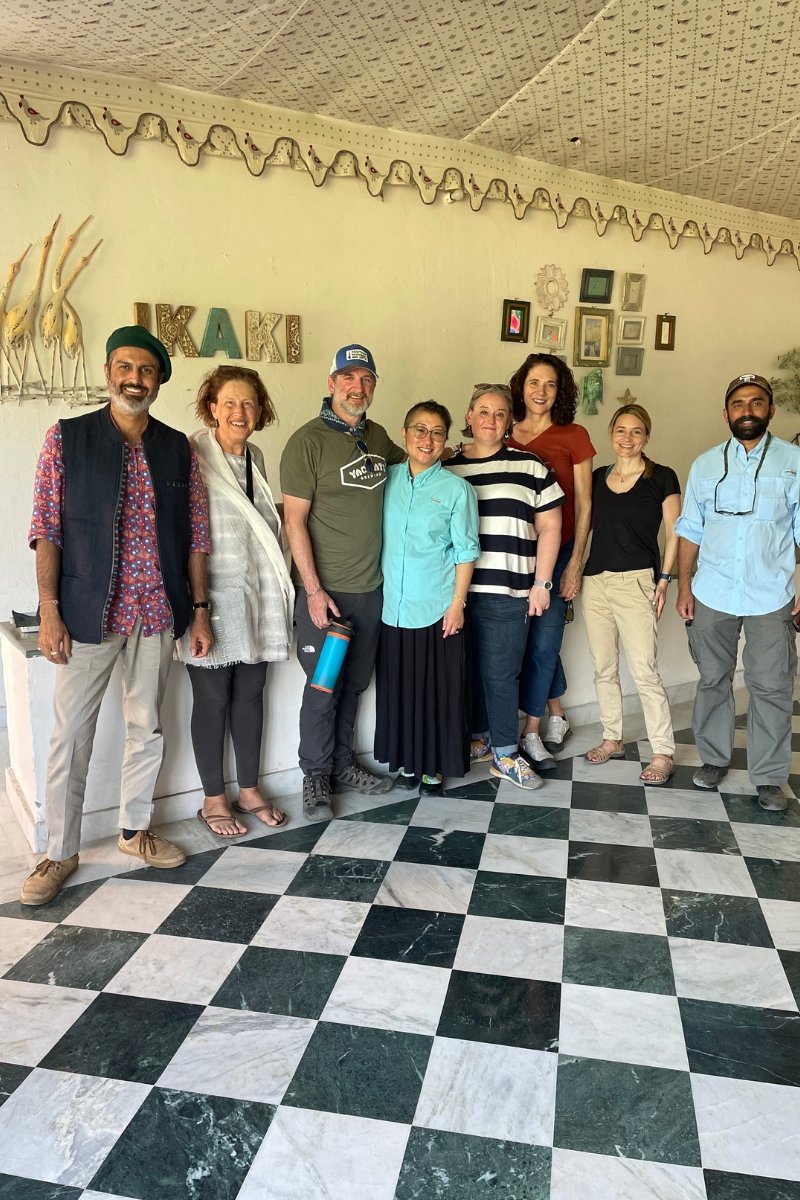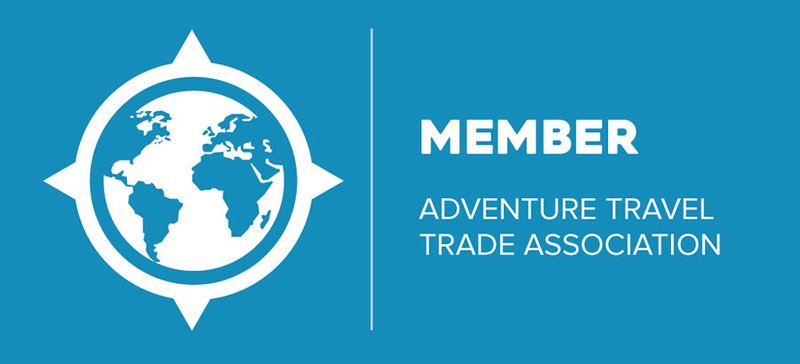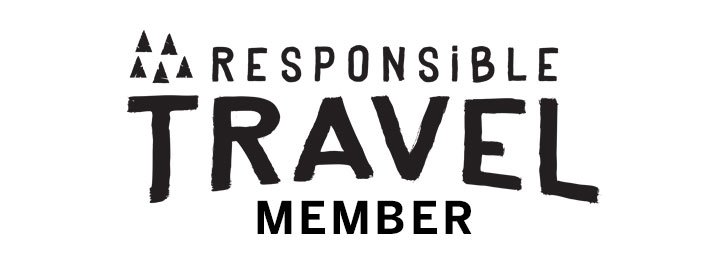We are very proud to partner with the Ikaki Foundation for our Eco Tour in Northern India. This is one of the NGOs in India that is working hard to improve the quality of education for children and communities who are underserved and lack access to basic resources.
The primary goal of the Ikaki Foundation is to create a holistic environment for the development of young minds that will help them to secure gainful employment or pursue entrepreneurial activities in the future. Through their educational support project, they provide classroom infrastructure, help maintain the health and hygiene of students, and provide resources such as personnel, stationery, and uniforms.
By partnering with the Ikaki Foundation, Traverse is able to contribute to securing funds for maintaining facilities at schools. 3% of every India trip booking goes directly toward making a lasting and sustainable impact on the lives of future generations. Find out more about the Ikaki Foundation and how your community partner donation can support them in this Q&A with Taveshi Manohar.
mission
Tell us a little bit about the community. Where in India is it and what makes it special to you?
The communities for which Ikaki Foundation works are located in and around the village of Jheenjha in Bassi block, 30 kilometers in the southeast of Jaipur. The majority of the population belongs to the Bairwa community, classified as Schedule Caste in India, an officially recognized socio-economic group that are among the most disadvantaged and have been traditionally ostracized.
The Families Behind Ikaki Bagh
Most of these families fall below the poverty line and their primary source of income is in agriculture or construction labor. A handful of families own small pieces of land on which they grow unirrigated crops. According to the records, the average literacy rate stands at 78.93 % (Male: 91%, Female: 67%) and many young adults have attended college. However, in spite of holding graduate degrees, most of the youth remain unemployed as they lack vocational skills, opportunities and proper guidance.
These families are special for the Ikaki Foundation as people from these communities help in running Ikaki Bagh, the family farm of the founder Jaideo Singh. They are the core service group at our farm-stay and have been part of the Ikaki family for years.
history
Tell us about the history of the school. Who started it, when, and why? Give us some historical context. Tell us how you became involved.
Ikaki Foundation
The government middle school, Jheenjha, is a Rajasthan government-run school up to 8th grade. The land for the school was allocated in 1986, but it was running irregularly for more than a decade. In 2010 the school management changed and sought out funds from local businesses.
In the school’s vicinity, Ikaki had a piece of land that was being used for organic agriculture, acting as a model farm to nearby farmers. This land was later developed as Ikaki Bagh (translating to “garden”) and now hosts discerning travelers from across the world. Thus, Jaideo Singh, the founder of Ikaki Foundation, came across the dire need for renovating the school infrastructure and helping with the management to run the school more efficiently.
Since then, the Ikaki Foundation has constructed classrooms, established hygienic cold-water systems for drinking, constructed and maintained a sanitation block, and has provided resources like books, stationery, uniforms, etc., to the school and students regularly. The Ikaki Foundation plays a significant role in uplifting the school and providing a better future for its students.
How is this important to the local community? How about in the greater picture of India when it comes to education and development?
We are well aware that education is the key to a brighter future. Well-read children can select the right vocation for themselves and earn a respectable living. Not only will they have better earning opportunities they will also ensure better education to future generations, breaking the vicious circle of poverty.
Barriers to Education and Gender Equality in Rural India
In India, the literacy rate stands at 74% out of which the male literacy rate is 82% and female is 65% percent. Though the Right to Education (RTE) Act has made elementary level education free and compulsory for all children 6-14 years of age, the lack of infrastructure and good teachers affect the quality of education, especially in rural areas.
Additionally, there is a large gap between the status of education of boys and girls in the country. 23% of girls drop out of schools when they hit puberty for a mere lack of decent toilet and menstruation facilities. This creates a huge gender disparity in education and leads to the ill-practices of child marriage (around 25% of women in Rajasthan are married before they turn 18 years, according to the fifth National Family Health Survey (NFHS-V) 2019-21), and often face domestic abuse, harassment, early pregnancy, child mortality, health risks, etc.
Jheenjha is the only government school for children in a 5 km radius, and because of improvements in infrastructure and management, this school is able to maintain a healthy student gender ratio and while empowering students to continue on to higher education.
challenges
What are some of the ongoing challenges that the local community faces? What are some of the school’s biggest needs?
Poverty, Education, and the Path Forward
Poverty is the biggest challenge faced by the local community. This leads to illiteracy, lack of nutrition, improper health and sanitation, child labor, female feticide etc. The local community needs more avenues to earn. With lower education and lesser vocational skills, the need of the hour is to create an environment for the holistic development of children, which will enable them to secure jobs or take up entrepreneurial activities in the future.
To equip the children for a better future, the school needs better teaching and development infrastructure, teaching aids, regular faculty training, student exposure trips, regular supply of stationery, uniforms, etc.
How does education help address these challenges?
Education is the most compelling means to initiate long-term development of the local population. It provides an opportunity to build the capacity of people, helping them to make informed decisions about their life. It not only helps to reduce poverty, but also takes care of other social and cultural challenges.
What makes your foundation’s involvement sustainable and lasting for future generations? Why is it so important to the community?
Ikaki Foundation’s Role in Social and Economic Development
When it comes to nonprofits in Jaipur, the Ikaki Foundation is the primary organization working to promote and improve social and economic conditions of the communities on a broad scale. This is achieved by focusing on all the major issues concerning the societies. These issues are identified by the communities themselves in the participatory approach applied from the beginning of the interventions to implementation and final stage.
All of the projects undertaken have been selected and designed to keep long term goals in mind. For example, the Efficient Education Project takes care of classroom infrastructure, maintaining the health and hygiene of the students (through potable water, clean toilets and necessary training) and providing all the required resources (personnel and kind) to create a positive learning environment for the children of the society.
Quality education ensures a lasting positive impact on the individuals, future generations, the communities and the country as a whole.
partnership with traverse journeys
How does the partnership with Traverse aid this project? What are some projects that you are currently working on?
Efficiently coordinated partnerships with like-minded organizations, like Traverse, are the key to meeting the objectives of any intervention.
For the school project, partnering with Traverse will help the Ikaki Foundation in securing the need for recurring funds for maintaining the toilets and sanitation block at the school. This will help provide a more hygienic school environment for the students (especially girls) and will contribute to their better health and overall development.
Having students meet the guests from Traverse Journeys will expose them to different ethnicities and provide them a learning opportunity, allowing them to open up their minds to various possibilities and give wings to their dreams.
We at the Ikaki Foundation have three major ongoing work areas:
Efficient Education through infrastructure improvement and Health and Hygiene at School
Learning and Development Centre for women and youth and
Regenerative agriculture projects
Guests from Traverse Journeys are most welcome to visit or help with fundraising for any of the above projects, as per their choice and convenience.
The Ikaki Foundation is committed to creating a better future for the children of disadvantaged communities in India. Through sustainable partnerships, they are working towards building the necessary infrastructure for quality education and improved health and hygiene at schools, providing opportunities for learning and development for women and youth, and implementing regenerative agriculture projects.















Searching for the perfect packing list for your upcoming trip to India? You’re in the right place! Whether you’re headed to India for the first time or as a seasoned traveler, packing for a trip to India comes with some thoughtful planning. When deciding what to pack when traveling to India, it’s important to consider which climate zone you’ll be in during which season.